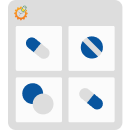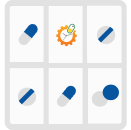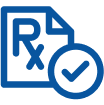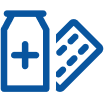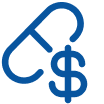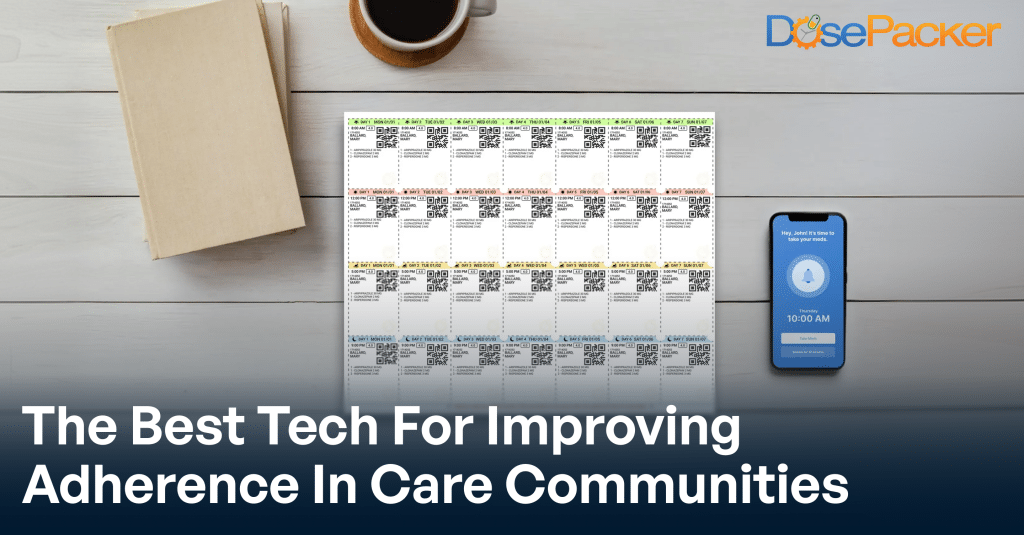Unlock the latest in medication management technology and grow your care community with us.

Adhering to the doctor’s prescriptions for medication is important in the pursuit of good health. Yet, many Americans grapple with medication non-adherence, where they may not consistently follow their prescribed regimens as directed by healthcare providers.
Medication non-adherence isn’t just about forgetting; it’s a substantial barrier to achieving positive health outcomes and inflates healthcare costs.
Fortunately, there are solutions at hand. With DosePacker, you gain support in safeguarding your health and access innovative solutions designed to enhance medication adherence and empower you on your health journey.
Find Out How DosePacker Does It
Take a deep dive into medication non-adherence, uncovering its extensive effects and discussing strategies for enhancing patient adherence to prescribed medication regimens.
What is Medication Non-Adherence?
Medication non-adherence simply means not following the instructions for taking your medicine as your doctor prescribes. This can happen in different ways, like forgetting to take your pills, taking the wrong dose, or stopping your medication before you’re supposed to.
This is a widespread issue that affects a significant portion of the population. Studies have shown that:
- Approximately 40% to 50% of patients with chronic diseases experience medication non-adherence. This failure to adhere to treatment is estimated to have resulted in at least 100,000 preventable deaths and incurred $100 billion in preventable medical costs annually.
- In a 2019 study, it was found that medical non-adherence was linked to a 17% increase in hospitalization rates. In contrast, strong adherence to medication regimens was associated with a notable 21% reduction in long-term mortality risk.
Medication non-adherence, whether from missed doses or stopping early, undermines treatment effectiveness. Adhering to medication is essential for managing chronic diseases, reducing complications, and achieving positive health outcomes.
Examples of Medication Non-Adherence
Non-adherence to medication is a pervasive issue. It occurs when individuals fail to follow the prescribed instructions for taking their medication as directed by their healthcare providers. This can manifest in various ways, including:
1. Forgetting to Take Medication
Despite intending to adhere to the prescribed regimen, individuals may occasionally forget to take their medication at the scheduled times, disrupting treatment effectiveness.
2. Taking Incorrect Doses
Misunderstanding or misinterpreting the prescribed dosage instructions can lead individuals to take too much or too little of the medication, potentially compromising their health and treatment outcomes.
3. Skipping Doses
Deliberately skipping doses of medication, whether due to concerns about side effects or perceived lack of immediate benefit can undermine the efficacy of the treatment plan and exacerbate health conditions.
4. Stopping Medication Prematurely
Individuals may discontinue their medication before completing the prescribed course, often due to feeling better or experiencing unpleasant side effects.
5. Improper Administration
Incorrect administration techniques, such as crushing pills meant for oral ingestion or failing to shake certain medications before use, can also contribute to non-adherence and compromise treatment effectiveness.
These examples illustrate the different ways medication nonadherence can manifest, highlighting the importance of understanding and addressing this issue to ensure the effectiveness of treatment regimens.
Read More: Common Medication Administration Errors
Causes of Medication Non-Adherence
Understanding why some people don’t take their medication as prescribed is essential for finding ways to help them stick to their treatment plans. Let’s explore some common reasons for medication non-adherence:
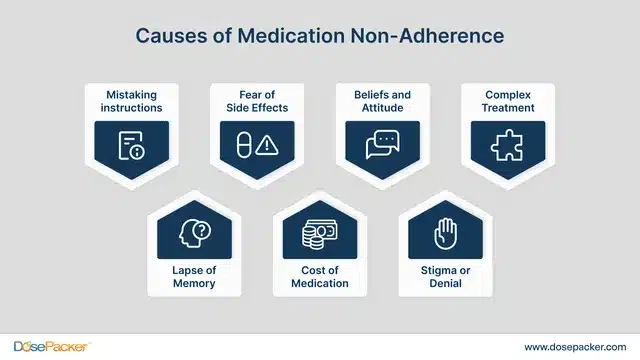
1. Forgetfulness
Life gets busy, and sometimes people just forget to take their pills.
2. Misunderstanding Instructions
Sometimes, the directions for taking medicine can be confusing, leading to mistakes.
3. Fear of Side Effects
People might worry about the side effects of their medication and choose not to take it because of that.
4. Beliefs and Attitudes
Some people might not believe the medication will help them or think they don’t need it.
5. Complex Treatment Regimens
Some medication regimens can be complicated, involving multiple pills at different times of the day.
6. Cost of Medications
Medications can be expensive for some individuals, leading them to skip doses or not fill their prescriptions.
7. Stigma or Denial
There may be stigma associated with certain health conditions or medications, leading individuals to avoid taking their medication due to concerns about judgment or denial of their condition.
8. Lack of Social Support
Individuals who lack support from friends, family, or caregivers may struggle to adhere to their medication regimen, as they may not have someone to remind them or help them manage their medication.
Healthcare providers and patients can enhance health outcomes and promote overall well-being by acknowledging these reasons and collaborating to devise innovative approaches, including utilizing personalized strategies and medication adherence tools.
Consequences of Medication Non-adherence
As said before, medication non adherence has far-reaching consequences that impact individual patients and the healthcare system. Let’s explore some of these consequences:
1. Worsening Health Conditions
When patients don’t take their medication as prescribed, their health conditions may worsen. This can lead to increased symptoms, complications, and even hospitalizations.
2. Increased Healthcare Utilization
Non-adherence to medication regimens often results in more frequent doctor visits, emergency room visits, and hospitalizations. These services can be costly and strain healthcare resources.
3. Economic Burden on the Healthcare System
The economic impact of medication non-adherence is substantial. Increased hospitalizations, emergency room visits, and other healthcare services contribute billions of dollars in avoidable healthcare annually.
4. Reduced Quality of Life
Non-adherence can negatively impact patients’ quality of life by limiting their ability to effectively manage their health conditions and enjoy daily activities.
5. Increased Risk of Complications
Failing to take medication as prescribed can increase the risk of complications associated with chronic diseases, such as heart disease, diabetes, and hypertension.
Understanding the consequences of medication noncompliance is crucial. It allows us to appreciate the importance of addressing this issue and implementing strategies to improve patient adherence to prescribed medication regimens.
Improve Medication Adherence with DosePacker
In the fight against medication non-adherence, innovative solutions are essential to empower patients and improve health outcomes.
DosePacker collaborates with pharmacies to revolutionize medication management and operational efficiency. Our mission is simple: to provide patients with the tools they need to stay on track with their medication regimens and achieve better health outcomes.
Our compliance packaging system simplifies medication management, making it easier for patients to follow their prescribed regimens accurately. But we’re more than just medication packaging. At DosePacker, we understand that medication adherence is about more than just remembering to take pills—it’s about empowering patients to take control of their health.
With open communication, patient education, and the implementation of supportive interventions, we can work towards a future where medication adherence is the norm rather than the exception.
Let us not underestimate the power of small steps—every missed dose remembered, every medication instruction understood, and every patient empowered brings us closer to a healthier, more resilient society. Let us strive for a future where everyone has the tools, support, and knowledge to stay on the path to wellness.
Revolutionize Medication Adherence with DosePacker
